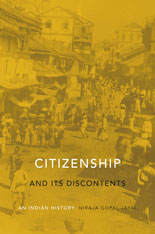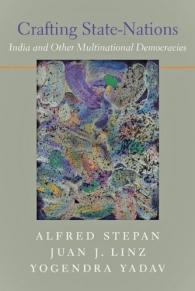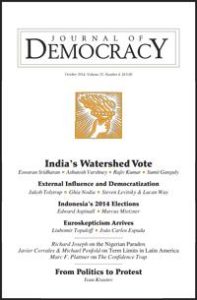 The cumulative effect of recent moves by Indian Prime Minister Narendra Modi and his Bharatiya Janata Party has been to throw India’s democratic character and future into a precarious state not seen since the mid-nineteen-seventies, when Prime Minister Indira Gandhi declared a state of emergency and imprisoned her political opponents, argues The New Yorker’s Isaac Chotiner:
The cumulative effect of recent moves by Indian Prime Minister Narendra Modi and his Bharatiya Janata Party has been to throw India’s democratic character and future into a precarious state not seen since the mid-nineteen-seventies, when Prime Minister Indira Gandhi declared a state of emergency and imprisoned her political opponents, argues The New Yorker’s Isaac Chotiner:
In response to the Citizenship Amendment Act, demonstrations have broken out across India. Many of them have been met with violence from authorities; several protesters have been killed. To help understand the legislation and the widespread backlash against it, I spoke by phone with Niraja Gopal Jayal, a professor at the Center for the Study of Law and Governance at Jawaharlal Nehru University and the author of several books on Indian democracy, including “Citizenship and Its Discontents.” During our conversation, which has been edited for length and clarity, we discussed India’s uneven history of religious tolerance, how Modi was able to exploit religious chauvinism, and the greatest challenges facing those who care about the future of liberalism in the country. RTWT
Yet, as demonstrations grow from Hong Kong to India, the world’s largest democracy could place its faith in the history of protests that have proved to be a tipping point for authoritarian regimes, analyst writes for The Washington Post:
India has a long way to go in fighting a regime that will stop at nothing to implement its idea of a Hindu nation. But for a country that is being labeled a “malevolent republic,” accused of losing its soul to small-minded, petty and vindictive ideas, students are proving to be its conscience keepers. And that should give some hope to India and the world as we witness one of its darkest periods in our history.
 Is India a “nation-state” or a “state-nation”? This may seem like semantics, but the answer will determine India’s democratic future, Carnegie analyst Milan Vaishnav observes. In their 2011 book, Crafting State-Nations: India and other Multinational Democracies, political scientists Juan Linz, Alfred Stepan, and Yogendra Yadav argued that ethnically diverse societies have one of two options when balancing the twin objectives of nation-building and democracy-building, he adds: @MILANV
Is India a “nation-state” or a “state-nation”? This may seem like semantics, but the answer will determine India’s democratic future, Carnegie analyst Milan Vaishnav observes. In their 2011 book, Crafting State-Nations: India and other Multinational Democracies, political scientists Juan Linz, Alfred Stepan, and Yogendra Yadav argued that ethnically diverse societies have one of two options when balancing the twin objectives of nation-building and democracy-building, he adds: @MILANV
- One route is the construction of a nation-state in which the political boundaries of the State mirror the cultural boundaries of the nation. The historian Eugen Weber famously described how French leaders in the wake of the Revolution transformed “peasants into Frenchmen” by moulding a common cultural, linguistic, and national identity that was uniquely — and exclusively — French.
- But for societies that possess strong cultural diversity, at least some of which is territorially based and backed by strong sub-national identities, the nation-state model is ineffective at best and counterproductive at worst. For these complex cases, Linz, Stepan, and Yadav suggest an alternative path — what they term a “state-nation”. Whereas a nation-state insists on alignment between the boundaries of the State and nation, a state-nation allows for a multiplicity of “imagined communities” to coexist beneath a single democratic roof. It recognises that citizens can have multiple, overlapping identities that need not detract from a larger sense of national unity.
 In confronting India’s staggering diversity, the framers of its Constitution sought to shape an overarching Indian identity even as they acknowledged the reality of pluralism by guaranteeing fundamental rights, in some cases through specific provisions for the protection of minorities, Robert L. Hardgrave Jr. wrote for the NED’s Journal of Democracy.
In confronting India’s staggering diversity, the framers of its Constitution sought to shape an overarching Indian identity even as they acknowledged the reality of pluralism by guaranteeing fundamental rights, in some cases through specific provisions for the protection of minorities, Robert L. Hardgrave Jr. wrote for the NED’s Journal of Democracy.
The early optimism that a new India could be fashioned out of an unequal and diverse society led to a formally inclusive legal membership, an impulse to social and economic rights, and group-differentiated citizenship, Jayal contends. But policies to create a civic community of equals are losing support in a climate of social intolerance and weak solidarity.







